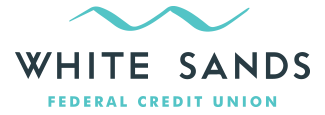10 money moves to make before you have a baby

Ready to pick baby names while wondering which color baby booties you’ll need?
(Neutral, everyone says go with neutral.)
Exciting and life-changing times are ahead! You’re going to have fun decorating the nursery and sharing the good news with everyone. But the next nine months are also important for getting your finances in order.
Studies show many parents underestimate costs of the first year. The stress leads to couples fighting over money right around when babies turn six months old (24 weeks in parent-speak).
A recent report indicates “the cost of raising a child: $233,610.” If you’re having a baby in 2019, this figure is closer to $250,000 adjusting for inflation. And that doesn’t include pregnancy or college. First-year costs alone come in as high as $21,000 in some areas.
No need to freak out or feel overwhelmed. Here are 10 money moves to make before your baby arrives.
1. Health Insurance – Priority
Why? Even with insurance, healthcare costs are one of the three biggest expenses for parents.
Do: Know or find the answers to each question below. Use this information to estimate additional savings you’ll need.
- What is and is not covered for prenatal care and delivery?
- Do you have a copay or need to meet a deductible?
- What’s the coinsurance after you’ve met the deductible?
- What’s the policy’s out-of-pocket maximum?
- How much more do you pay to go out-of-network?
- What happens if you need a C-section versus regular delivery?
- Is there a limited number of covered days in the hospital for delivery?
- How much time after delivery do you have to add your baby as a covered dependent?
Don’t: Make assumptions with your healthcare coverage. Get the answers from HR or your healthcare insurer. Keep it in writing both for your reference and in case of billing discrepancies down the road.
2. Create a Budget – Priority
Why? A budget gives you a picture and plan for your cash flow. You need a pre-baby picture as your starting point. Even if you already have a budget, it doesn’t hurt to take another look at your expenses. You might still be paying for subscriptions or monthly streaming services you’re not using.
Do: Create a new budget including the baby once you’ve got a handle on your pre-baby finances. Besides diapers and baby food, other additional expenses could include:
- Out-of-pocket healthcare costs
- Maternity clothes
- Formula
- Child care
- Higher utility bills – water and electric
- Unpaid time off
- Baby gear and furniture
Ask any parent, and they’ll tell you the same thing: they didn’t know how expensive babies can be.
Don’t: Overspend on baby items! It’s a common mistake new parents make. Buying products you don’t need, spending too much on items used for a short time, and thinking everything needs to be new will blow up a budget fast.
Tip: Get finance software if you don’t already use it. Choose one that can pull in your White Sands FCU checking and savings information, as well as credit card data. Having all your numbers in one place saves time and helps with budgeting, expense tracking, debt tracking, and savings goals.
3. Plan Your Leave – Priority
Why? The amount of paid or unpaid time you and your partner can take directly impacts your budget.
Is your company’s “paid” time salary or through disability benefits? It’s common to use a combo of paid and unpaid time with vacation and personal days. But you need to understand what’s possible through your employer’s benefits plan. Finally, don’t forget to ask your employer about the Family and Medical Leave Act (FMLA), which protects your job during time off to care for a new baby.
Do: Decide how you’ll address any unpaid leave. What options do you have? Will your employer let you work part-time or from home for a few weeks? Can shifts be switched around so that one parent is always home?
Don’t: Wait until later to discuss if one parent will not return to work. If the priority is always to have one parent home, what will need to shift to make this happen? This decision may change over time so the sooner you start the discussion, the better.
4. Child Care
Why? If both parents are returning to work, you’ll need to budget for this expense.
The average annual daycare cost for one child is about $9,000. It may be less expensive in our region than other parts of the country, but it’s still one of the three biggest expenses of your new budget.
Do: Check with your employer to see if there are family benefits you might be able to take advantage of. For example, if you’re eligible to enroll in a Dependent Care Flexible Spending Account, the tax benefits could help you save a bundle on child care.
Don’t: Underestimate the time it could take to vet child-care providers and explore all your options. While you want to save money, you also want to know you can trust the humans caring for your baby.
5. Emergency Fund
Why? Thanks to good ol’ Murphy’s Law, unplanned expenses will come up. You may find out your baby doesn’t like all the special baby bottles you bought. One parent could get laid off. Having a cushion will help you through unpredictable situations.
Do: Use Direct Deposit and Automatic Transfers to automate your savings.
Make it your goal to build up at least six months of expenses and try to maintain that amount.
Don’t: Skip this step. A recent survey indicates almost two-thirds of households with young children save no money. Save what you can: two or three months saved is better than nothing.
6. Life Insurance
Why? It’s sleep-at-night coverage for a worst-case scenario. If the policyholder dies, beneficiaries receive a tax-free lump sum to pay for ongoing expenses like a mortgage.
Do: Update your beneficiaries to include your child and evaluate your limits if you already have a policy.
Check with your employer to see if they offer life insurance as a benefit. You may already have it through your employer for basic limits and not know it.
Don’t: Buy into complicated policies like whole life, variable or universal life at this time. Stick to term life which has affordable premiums for young and healthy adults.
7. Retirement
Why? Becoming a parent doesn’t mean you must sacrifice everything financially to raise a child. If you forget your own long-term goals, your child might have to support you later in life.
Do: Continue to take advantage of any employer retirement plans, such as 401(k) plans or SEPs, and max out any employer match percentages. Pre-tax amounts deducted from payroll before you even see them are by far the easiest way of saving.
Don’t: Rely on just one partner’s retirement funds. Each of you should have your own retirement savings accounts. White Sands FCU can help set up an Individual Retirement Account.
8. Education Fund
Why? Education is another one of the three biggest expenses for parents.
College costs average $200,000+ for private institutions and $100,000+ for in-state public schools. Funds in a 529 Plan can now be used for K-12 education expenses up to $10,000 a year as another benefit.
Other options for saving are contributing to Roth IRAs (individual retirement accounts) and Coverdell ESAs (education savings accounts).
Do: Encourage family to contribute to education funds.
Don’t: Pass up free money if your employer has a 529 match.
9. Fun Fund
Why? In a past article, “The Importance of a Fun Fund” we highlighted how being too stringent on yourself can lead to impulse spending. If you’re sticking to your budget and being responsible, you deserve a little bit of fun.
Do: Keep it separate from your checking and any other savings accounts you have. It ensures funds that have different purposes are spent only for those purposes. $25 per month for your ‘Fun Fund’ could get easily spent if kept in a checking account used for bill paying and general household spending.
Don’t: Overlook setting aside even small amounts. $10 a month could mean a de-stressing date with your partner getting ice-cream and people watching.
10. Update Taxes
Why? So you can claim the Child Tax Credit of $2,000 per child, which is a dollar-for-dollar reduction of your taxes.
Do: Check whether you qualify for the Earned Income Tax Credit on the IRS site, or with an accountant or other tax professional.
Don’t: Forget to check with the same sources whether you also qualify for the Dependent Care Credit. This credit would apply for daycare expenses that exceed the amount of a Dependent Care FSA account.
Bonus Money Move: Make a Will
Why? Similar to life insurance, this is a step that ensures your child is taken care of in a worst-case scenario. A will designates a guardian and lays out the plan for assets. Estate planning is for everyone, not just rich people or older people.
Note that it’s easier to approach this task before a baby is born. In theory, you’re less emotional before the kids.
Do: Consider also setting up a power of attorney, health care proxy, and setting up financial assets in a trust. The trustee’s focus is the financial interest of your child while the guardian serves as the caretaker. A power of attorney designates someone to handle your private, business or other legal matters if you’re incapacitated. A healthcare proxy appoints someone to make medical decisions for you if you’re incapacitated.
Don’t: Pass on notarizing the will. Your family will avoid others contesting ownership of your assets and who cares for your children in long court battles.
Start Your Plan with Priority Money Moves
Don’t try making all of these money moves at once. Prioritize the most immediate and critical tasks, such as healthcare, creating a budget and understanding your employer’s leave policy and benefits.
If you can’t get to all of them as soon as you’d like, it’s okay. Move on to the rest as your budget and time allow. Set calendar reminders to revisit the budget every quarter. Visit White Sands FCU with questions or to help you evaluate your plans.
Start putting your plan in place now, and you’ll have more time, money, and energy to enjoy picking out baby booties and bonding with your baby!
Contact Us
Call Center:
(575) 647-4500 or
Hours of Operation:
Monday thru Friday, 8 am-5 pm
Mailing Address:
P.O. Box 99
Las Cruces, NM 88004
Routing & Transit # 312276470
Federally Insured by NCUA
Your savings federally insured to at least $250,000 and backed by the full faith and credit of the U.S. Government. National Credit Union Administration, a U.S. Government Agency.
Equal Housing Lender
We do business in accordance with the Federal Fair Housing Law and the Equal Credit Opportunity Act.
White Sands Federal Credit Union is committed to providing a website that is accessible to the widest possible audience in accordance with the WCAG 2.0 standards and guidelines. We are actively working to increase accessibility and usability of our website to everyone. If you are using a screen reader or other assistive technology and are encountering problems using this website, please contact us at 575-647-4500 or 1-800-658-9933. Please provide the location of the inaccessible information. All products and services available on this website are available at all White Sands Credit Union branch locations.

